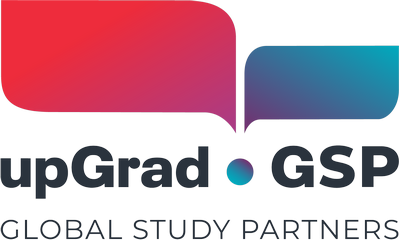There’s more to post-secondary education than a degree. Certificates and diplomas are viable alternatives that students can take to further their education or kickstart their careers. But what’s the deal between certificates vs. diplomas? Both are focused on specific skills or areas of knowledge and can be completed in a shorter period than a degree. But they differ in several ways. For instance, diplomas are a step higher than certificates in terms of the amount of training included in the program, but that also entails heavier coursework and a longer completion time.
At Global Study Partners (GSP), we’ve partnered with several institutions in key study abroad destinations that offer a variety of certificate and diploma programs. In this article, we’ll go in-depth on the differences between the two to help you steer international students towards the right path.
What is a certificate?
A certificate is an educational credential given to students who complete a certificate program, which is a short-term course that focuses on a specific topic or skill. It’s awarded by various institutions, including colleges, vocational schools, universities, professional organisations and even online platforms.
Students can pursue a certificate as an alternative to an undergraduate degree, but they can also take a course concurrently with a bachelor’s program. Graduate students may also take certificates for further professional development.
Certificate programs don’t have waiting lists, so they’re easier to gain admission to. They also have different start dates throughout the year with flexible schedules that often work well for working students. Many professionals also take certificate programs, making them a great way to engage with people in the field.
Certificate programs may tackle subjects like:
- biblical studies
- criminal justice
- project management
- web development
- marketing
- sports management.
What is a diploma?
A diploma is very similar to a certificate in that it’s awarded to students who complete a program on a specific course of study. However, a diploma falls in between a certificate and a degree in terms of the amount of coursework required and the period of completion; it’s also mostly given by colleges and technical schools (rather than universities and professional institutions). Pursuing a diploma program is ideal for people who want to gain specialised skills.
Diploma programs are a good introduction to university life, minus the rigorous enrolment procedures and heavy workloads. They’re designed to equip students with specialised skills needed for the field they’re interested in, and they do this through hands-on experiences like internships or externships (which also double as networking opportunities).
Examples of diploma programs include:
- practical nursing
- legal office assistant
- accounting assistant
- wildlife/forestry conservation
- pharmacy technician
- home inspector
- repair technician
- certified personal trainer.
The differences between a certificate and a diploma
A certificate and a diploma are very similar, and they can even tackle identical areas of study. However, they differ in coursework, duration, prospects, cost and availability. Here’s a breakdown of the differences between a certificate and a diploma.
Coursework
A certificate provides students with additional training related to their intended career through a mix of classroom and hands-on training. A diploma is the same, except it’s heavier on practical training, with a few classes sprinkled in between. This makes it ideal for technical industries.
Both certificates and diplomas focus on a single subject, but the latter offers more in-depth lessons.
Duration
Both certificate and diploma programs run shorter than a degree course. A certificate usually takes a few months to a couple of years to complete. A diploma, on the other hand, lasts about two years.
Prospects
A certificate allows students to hone their abilities to perform tasks in a specific field. It’s often used to supplement other educational credentials, especially if one is hoping to get a promotion or change careers.
A diploma prepares people for technical careers. It can be used to kickstart a career in a certain field of interest.
Cost
Certificates and diplomas are more cost-effective options than a bachelor’s degree. Between the two, getting a certificate is even cheaper (around AUD 3,500 to 7,500) since it requires less coursework and can be completed in a shorter period; students pay less for tuition and supplies. Pursuing a diploma is still an efficient approach if a student wants to progress their training in a specific industry without having to spend the same resources as they would for a degree. This route typically costs AUD 10,000 to 30,000 annually, though there are also numerous cheaper programs available.
Availability
Certificates are widely available. Students can obtain them from various institutions—not necessarily just academic ones—throughout the year. They offer a lot of flexibility and are cost-effective, so they can be taken alongside a degree program. Diploma programs are also offered by many schools and universities, but they take longer to finish, so students may need to plan better around them.
Certificates vs. diplomas: Which is better?
Choosing between certificates vs. diplomas will ultimately depend on a student’s goals. Either one is ideal if a person is looking to boost their knowledge or enhance their skills in a specific subject or industry.
A certificate would be better for students who just want additional training, perhaps to supplement their existing knowledge or skills. A diploma may be ideal for someone who is hoping to kickstart their career or obtain more advanced training in their field.
Explore certificate and diploma courses with GSP
GSP has multiple partner institutions from around the world that are offering high-quality certificate and diploma courses in a variety of specialties. Check out current offers on the GSP platform or speak to one of our recruitment and business development experts to learn more.




